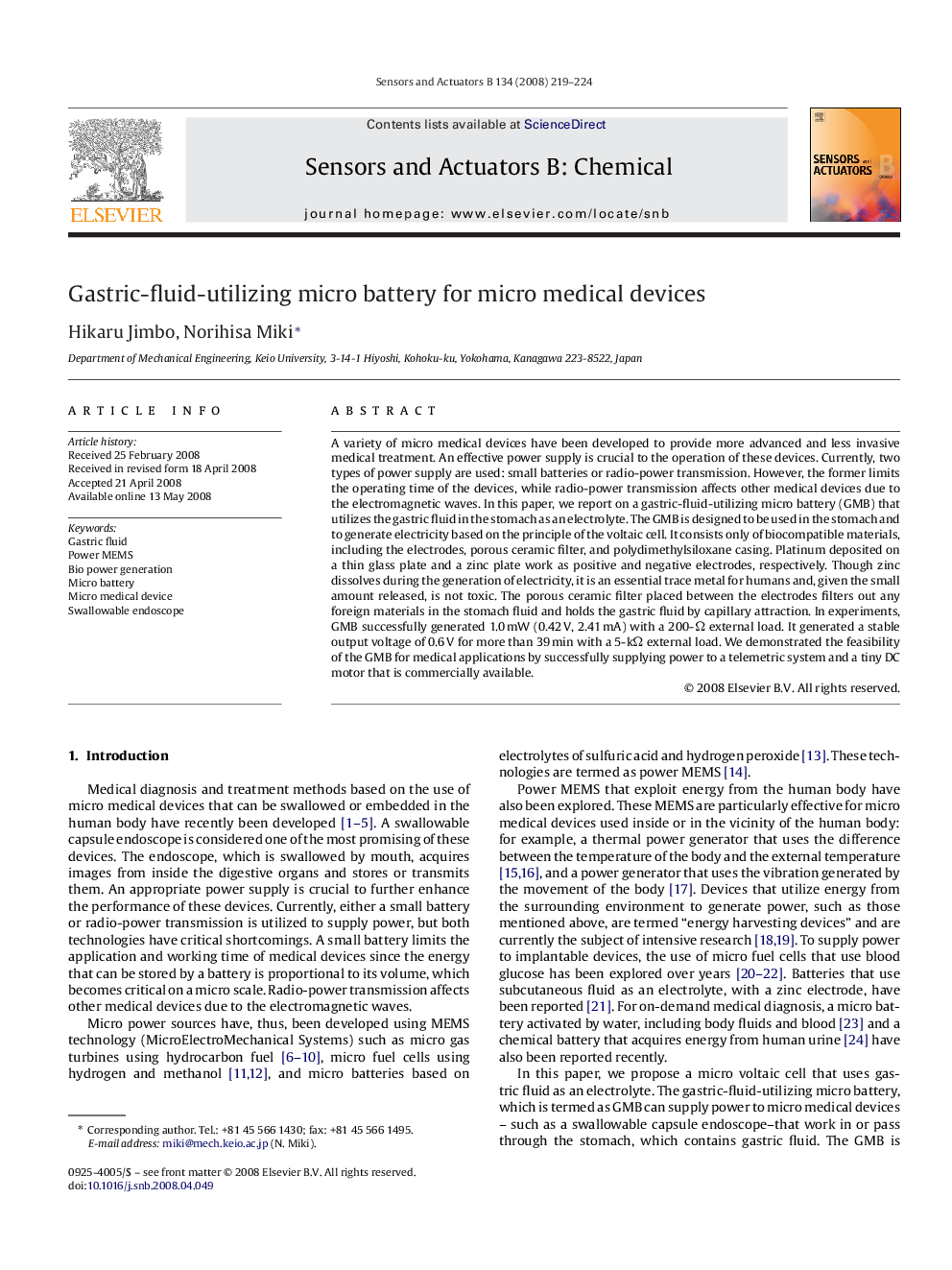| Article ID | Journal | Published Year | Pages | File Type |
|---|---|---|---|---|
| 743569 | Sensors and Actuators B: Chemical | 2008 | 6 Pages |
A variety of micro medical devices have been developed to provide more advanced and less invasive medical treatment. An effective power supply is crucial to the operation of these devices. Currently, two types of power supply are used: small batteries or radio-power transmission. However, the former limits the operating time of the devices, while radio-power transmission affects other medical devices due to the electromagnetic waves. In this paper, we report on a gastric-fluid-utilizing micro battery (GMB) that utilizes the gastric fluid in the stomach as an electrolyte. The GMB is designed to be used in the stomach and to generate electricity based on the principle of the voltaic cell. It consists only of biocompatible materials, including the electrodes, porous ceramic filter, and polydimethylsiloxane casing. Platinum deposited on a thin glass plate and a zinc plate work as positive and negative electrodes, respectively. Though zinc dissolves during the generation of electricity, it is an essential trace metal for humans and, given the small amount released, is not toxic. The porous ceramic filter placed between the electrodes filters out any foreign materials in the stomach fluid and holds the gastric fluid by capillary attraction. In experiments, GMB successfully generated 1.0 mW (0.42 V, 2.41 mA) with a 200-Ω external load. It generated a stable output voltage of 0.6 V for more than 39 min with a 5-kΩ external load. We demonstrated the feasibility of the GMB for medical applications by successfully supplying power to a telemetric system and a tiny DC motor that is commercially available.
